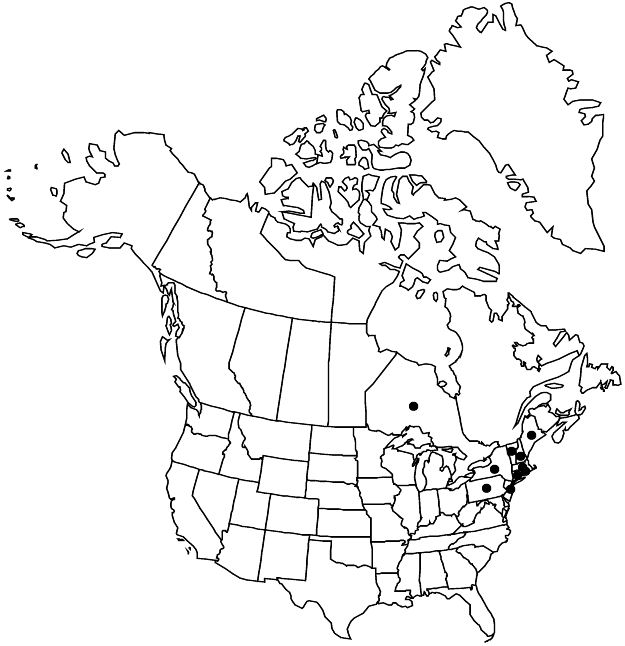Vitis ×novae-angliae
Rhodora 19: 146. 1917. as species
Plants high climbing, sparsely branched. Branches: bark exfoliating in shreds; nodal diaphragms 0.3–1.1 mm thick; branchlets terete, sparsely arachnoid or glabrous, growing tips not enveloped by unfolding leaves; tendrils along length of branchlets, persistent, branched, tendrils (or inflorescences) at 3+ consecutive nodes, usually not at all nodes; nodes not red-banded. Leaves: stipules 2.5–6 mm; petiole 1/2 to ± equaling blade; blade cordate, 10–20 cm, usually 3-shouldered, apex acute to short acuminate, abaxial surface not glaucous, ± densely arachnoid when young, sparsely arachnoid when mature, visible through hairs, adaxial surface usually glabrous. Inflorescences 7–13 cm. Flowers functionally unisexual. Berries black, slightly glaucous, globose, 12+ mm diam., skin separating from pulp; lenticels absent.
Phenology: Flowering Jun; fruiting Aug–Sep.
Habitat: Thickets, roadsides, pond and stream margins, fence- and hedgerows.
Elevation: 70–1400 m.
Distribution

Ont., Conn., Maine, Mass., N.H., N.J., N.Y., Pa., R.I., Vt.
Discussion
Vitis ×novae-angliae is a presumed hybrid between V. labrusca and V. riparia and is common in the New England region (M. O. Moore 1991).
Selected References
None.